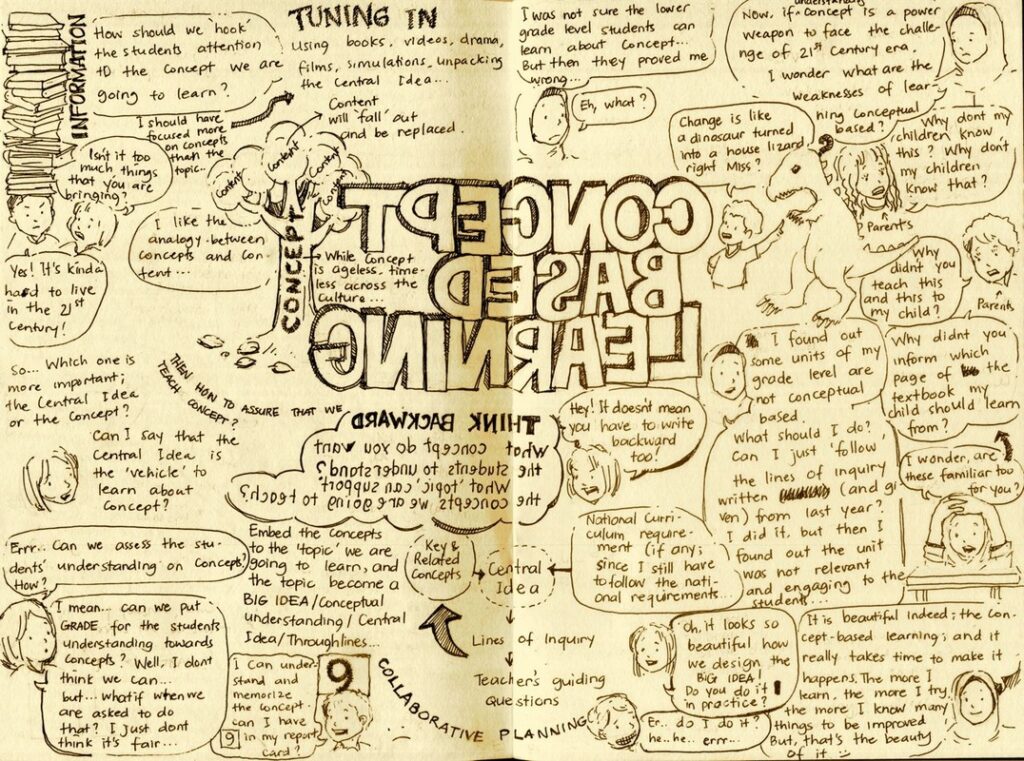Concept-Based Curriculum and Instruction
We are all aware of the never ending ABCs of education, however, I’m adding this one to the top of my list. Adapting and growing our knowledge and understanding of instruction to be more concept-based is a driving force in creating classrooms that encourage critical thinking, meaningful learning, and builds the skills to allow our students to be life-long learners.
Concept-Based Curriculum and Instruction is:
- An approach to curriculum design focusing on big ideas
- A tool used across subjects, designed to encourage cross-content learning connections
- Crucial in building higher order thinking skills, critical thinking, creative thinking, and reflective thinking
- Helpful in creating meaningful learning experiences due to factual and conceptual thinking working together
- Imperative in developing our students into 21st century learners
https://www.linkedin.com/pulse/concept-based-learning-todays-students-sebastien-barnard/
“The belief that all genuine education comes about through experience dose not mean that all experiences are genuinely or equally educative” – John Dewey
https://www.whatisib.com/concept-based-learning.html

CBCI – How it is changing my mindset
Big Ideas in the Classroom
- Within the past five years, many US States have rewritten their social studies cirriculum to be more thematically grouped, teaching relating topics (EX: Revolutions, Civil Rights Movements, Shifts in Geographical Patterns, etc.) instead of the antiquated way of teaching exclusively chronologically
- This has allowed me to see what even a slight implementation of CBCI can do for student engagement and comprehension
- When learners are challenged to view larger patterns they are able to challenge their thought processes and grow their comprehension far past low-level Blooms Taxonomy learning levels
- If this process is applied to unit and lesson planning, students are able to learn how to learn and can take those skills with them into other classrooms and in their post-gradate lives
Unit Plan
My unit plan will be focused around building students creative thinking and metacognition skills. I scaffold choice-board unit performance tasks throughout the year and towards the last few units students are challenged to push themselves. I look forward to developing a unit surrounding social transformations in the United States, with a focus on scientific inquiry, the shift to a technological economy, impact of mass media and expansion of civil rights. The unit will be focusing on the following learning targets:
-Following World War II, the United States experienced a struggle for racial and gender equality and the extension of civil rights.
-The postwar economic boom and advances in science and technology, produced changes in American life.
-Political debates focused on the extent of the role of government in the economy, environmental protection, social welfare and national security
Processes I will use to Implement CBCI in the Unit Plan:
I will identify essential key concepts for students to learn, and the students will choose one main concept to focus their project on
Students will use their own pre-assessment data to guide their learning
Students will write their own essential questions that their classmates will use to peer-grade
The multi-element choice board will include options that appeal to multiple intelligences/learning styles
Choice board options will be the same for all students, however, the information used to respond to the prompts and demonstrate comprehension will be differentiated for students who are ELL, Gifted, have an IEP in place, are in an honors level-course, or require other individualized adjustments
All materials will be provided to students and will include graphics, videos, websites, textbook resources, Google Slide notes, and primary sources
Students will reflect before, during, and after the assignment
Students will use a strengths finder identifier to help them in choosing the best choice board option for their specific strengths
Students will reflect daily on their comprehension and skillset demonstrating that comprehension
